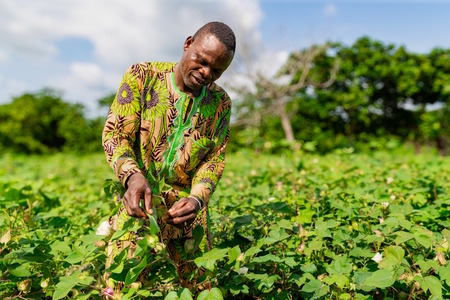
Pakistan putting efforts to produce certified organic cotton
YarnsandFibers News Bureau 2018-02-22 11:00:00 – KarachiMeeting organized by the World Wildlife Fund-Pakistan (WWF-P) and the Karachi Cotton Association (KCA) on Tuesday to discuss the efforts being made to produce certified organic cotton, which is currently being cultivated in Balochistan. Organic cotton being cultivated in the country will get certification from world agencies next year.
The transformation will take place under the supervision of WWF-P and a certified verifying body, which will inspect the crop’s quality.
Issues related to seed, production, demand, developing supply chain and linkages between growers and the textile industry were discussed during the meeting.
WWF-P and Control Union Sri Lanka audited and inspected 500 cotton growers in Lasbela district in 2015, and a three-year organic cotton project was launched in 2016 in Lasbela, Sibi and Barkhan districts.
The project aims to improve the income and yield of organic cotton farmers through capacity building. Organic cotton is grown without chemical fertilisers or pesticides.
In fact, the piece of land is also detoxified from residues of chemical fertilisers and pesticides over a period of at least three years. Moreover, the seeds used to grow organic cotton are not genetically modified and are kept clean from chemical impurities.
If the crop adheres to organic cotton farming standards for three years, the yield is certified as organic cotton. The type is gaining popularity among health-conscious consumers and world’s leading brands. Besides, value-added textile products made by organic cotton fetch higher prices.
There is an urgent need to produce this cotton at home, as most of the world’s leading brands plan to stop buying products made from conventional cotton by 2025.
Pakistan initially expects to produce around 50,000 bales of organic cotton, mostly from Balochistan and over the time, it would be spread to other areas of the country. Pakistan, currently imports around 400,000 bales of organic cotton, mostly from India.
Market Intelligence
Ask for free sample Report

experience
Customer Base
dedicated team
Countries Served Worldwide









